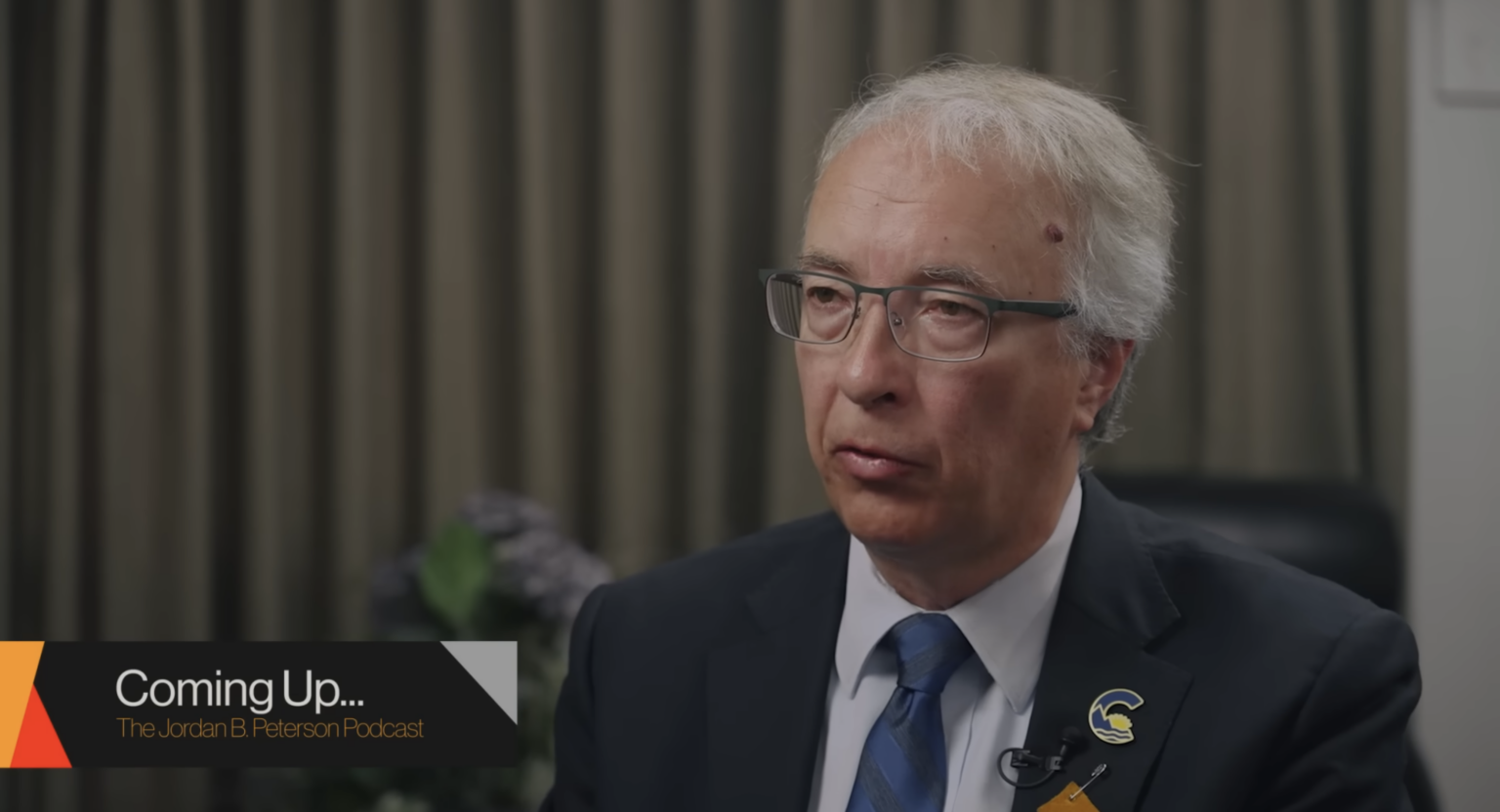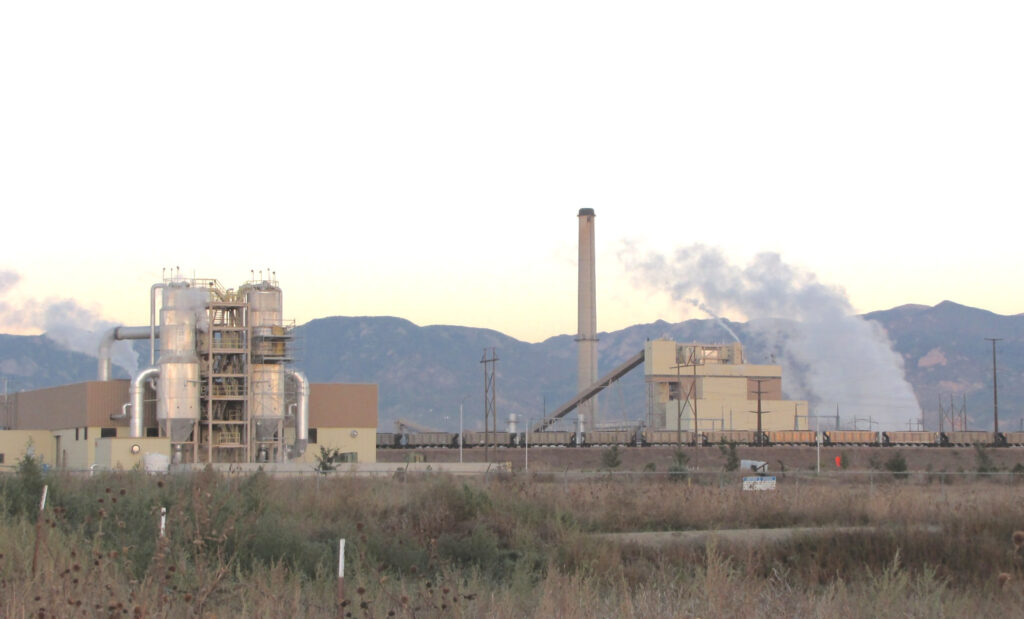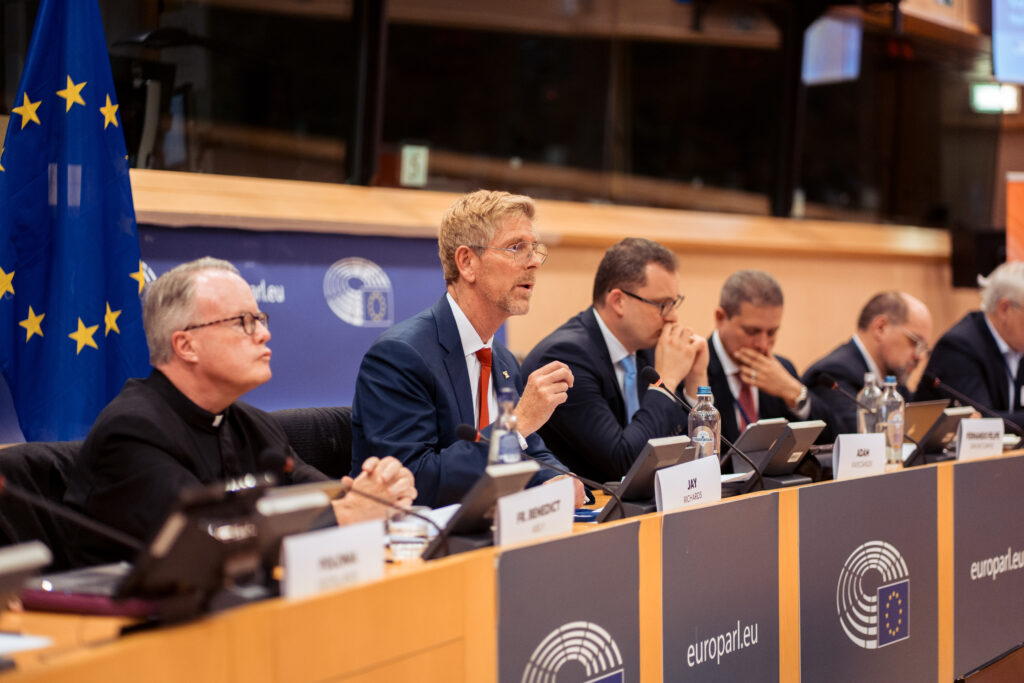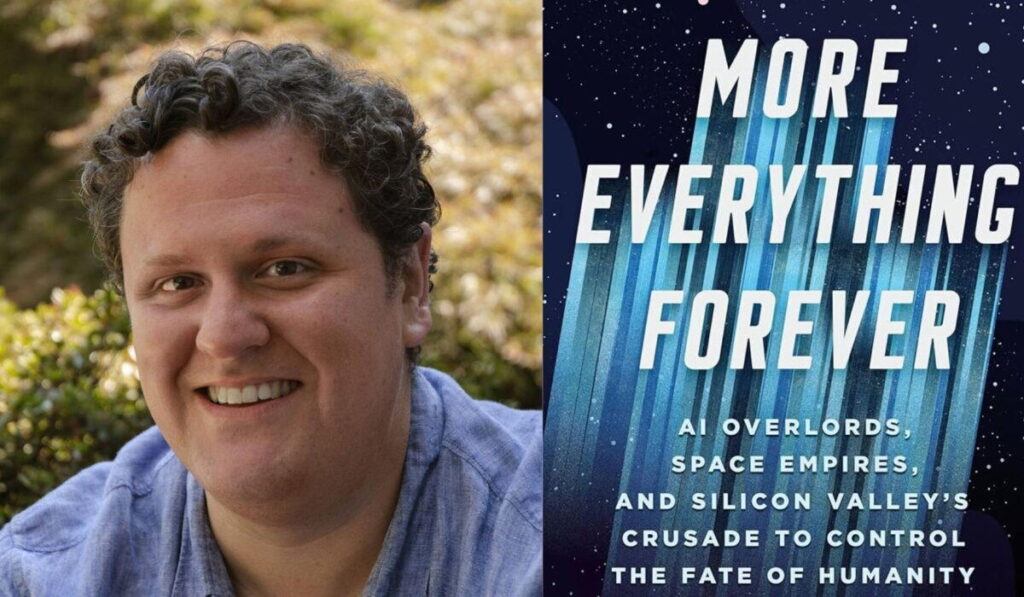Thanks to the recent implosion of British Columbia’s right-leaning BC United party, John Rustad, the leader of the Conservative Party of BC, is no longer a fringe player in a fast-approaching provincial election.
With just over a week in the mainstream spotlight, Rustad has made headlines for a number of statements that deny the existence of climate change.
During a recent interview with far-right influencer Jordan Peterson, Rustad expressed his incredulity that people would be worried about carbon emissions.
Subscribe to our newsletter
Stay up to date with DeSmog news and alerts
“It’s a sad reality, but how is it that we’ve convinced carbon-based beings that carbon is a problem?” asked Rustad, rhetorically.
The centre-left New Democratic Party, which forms the province’s government, was quick to seize upon Rustad’s peculiar comments.
Environmentalist Michael Mann has described Peterson as a “central cog in the denial machine.” Thanks to Peterson’s influence, fringe climate change deniers have a platform allowing them to generate millions of views on social media sites.
Rustad isn’t the only one in his party with fringe views on climate, vaccines, and other issues affecting British Columbians. Several candidates have made peculiar claims, like calling Pride Parade participants degenerates, or suggesting 5G technology is a weapon. The BC Conservatives hold only eight seats in the British Columbia legislature, and received less than 2 percent of the vote in the last provincial election. Recent polls show Rustad is now neck-and-neck with Premier David Eby.
Rustad was previously ejected from what became the BC United party in 2022 because he wouldn’t delete a retweet from climate change denier Patrick Moore, which claimed “The case for CO2 being the control knob of global temperature gets weaker every day.”
Patrick Moore is a climate change denier and nuclear power advocate who has misrepresented himself as the founder or cofounder of Greenpeace.
Ignoring Scientific Consensus
As reported by The Tyee, Rustad and Peterson shared their respective views on climate science, and their skepticism that accumulating carbon dioxide in the atmosphere is bad for the climate or the planet’s environmental health. Peterson and Rustad’s opinions contrast sharply with the scientific consensus on anthropogenic climate change, when it comes to both human activity as the leading cause, and greenhouse gases’ disastrous effects.
Rustad’s comments to Jordan Peterson contrasted somewhat with his earlier statements. As reported by The Tyee, at a June 20 speech to the Greater Vancouver Board of Trade, Rustad said that while climate change was real, “the question is the degree of impact — scientists argue about that.”
This too is inaccurate. There is vast, international consensus amongst climate scientists that the average global temperature is higher than in pre-industrial times, and that human activity is the leading cause. Researchers say the leading voices arguing there is anything less than consensus on this issue (including degree of impact), are climate crisis deniers contributing to a web of climate obstruction.
Rustad’s discussion with Peterson allowed him an opportunity to share some of his other ideas, such as his belief the carbon levy “is a vain attempt to change the weather.” Conservative politicians and pundits have been hyper critical of carbon pricing in Canada, despite the fact that carbon pricing has been demonstrated to be an effective tool in curbing greenhouse gas emissions. More importantly, BC was the first province to introduce a revenue neutral carbon tax, and it is estimated to have reduced the province’s greenhouse gas emissions by 15 percent. Significantly, the BC carbon tax had no negative impact on the province’s economy.
Carbon taxes are neither known, nor intended, to have any impact on weather, though it is possible Rustad may have confused weather with climate. Confusing weather and climate happens often enough amongst climate change deniers, so much so that clarifying the difference has become an important tool in debunking denialist claims.
Rustad also stated his support of nuclear power, arguing that the provincial ban on nuclear power — one initiated by the former BC Liberal government — was a “crazy” decision, and that the province should reconsider the ban to lower the costs of energy. Rustad further argued in favour of small modular reactors, which have come to be favored amongst conservative politicians and pundits, as well as the fossil fuel sector. Climate scientists and decarbonization advocates have long argued against nuclear power as an ineffective and inefficient use of public funds, especially when fully-renewable energy systems, like wind, water, and solar power, are readily available and far less expensive.
As British Columbians prepare to go to the polls on October 19, the BC Conservative Party’s platform on climate change is far from clear. While the party’s official policy states their belief climate change is real and that “man is impacting our climate,” the party is explicit in stating it doesn’t believe there is any crisis. They further state that the climate crisis is not an existential threat, nor is it British Columbia’s top priority.
“The Conservative Party of BC will not go down the rabbit hole of over-taxation, hype, scare-tactics and false promises,” it reads. Rustad has argued that the BC NDP’s climate policies are “taxing people into poverty” and reiterated that he won’t prioritize fighting climate change over affordability issues. Rustad seems unaware that climate change is a key driver of the affordability crisis, particularly housing affordability.
Indigenous Communities Impacted
News of Rustad’s unexpected ascension to de facto opposition leader did not sit well with the Union of British Columbia Indian Chiefs (UBCIC), which quickly and methodically scrutinized Rustad’s problematic environmental opinions.
In a statement, UBCIC Vice-President Chief Don Tom said, “We cannot let a political circus with a complete disregard for the scientific community roll back progress being made in our Province. The urgency of addressing climate change and preserving our environment is undeniable. It is not a matter of ideology but of ensuring the health and safety of all communities for generations to come.”
Conservative governments across Canada, though particularly those in Western Canada, have — along with fossil fuel companies — aggressively courted the Indigenous vote in recent years. Among others, they have argued Indigenous-led resource exploitation is key to both Indigenous self-government, as well as a way for Indigenous communities to pull themselves out of poverty.
But Rustad’s comments to Peterson on matters on Indigenous self-determination and self-government were condemned as “inflammatory, ignorant, and inherently false,” by the First Nations Leadership Council (FNLC). The FNLC is composed of the political executives of the BC Assembly of First Nations (BCAFN), First Nations Summit (FNS), and the Union of BC Indian Chiefs (UBCIC).
Subscribe to our newsletter
Stay up to date with DeSmog news and alerts






